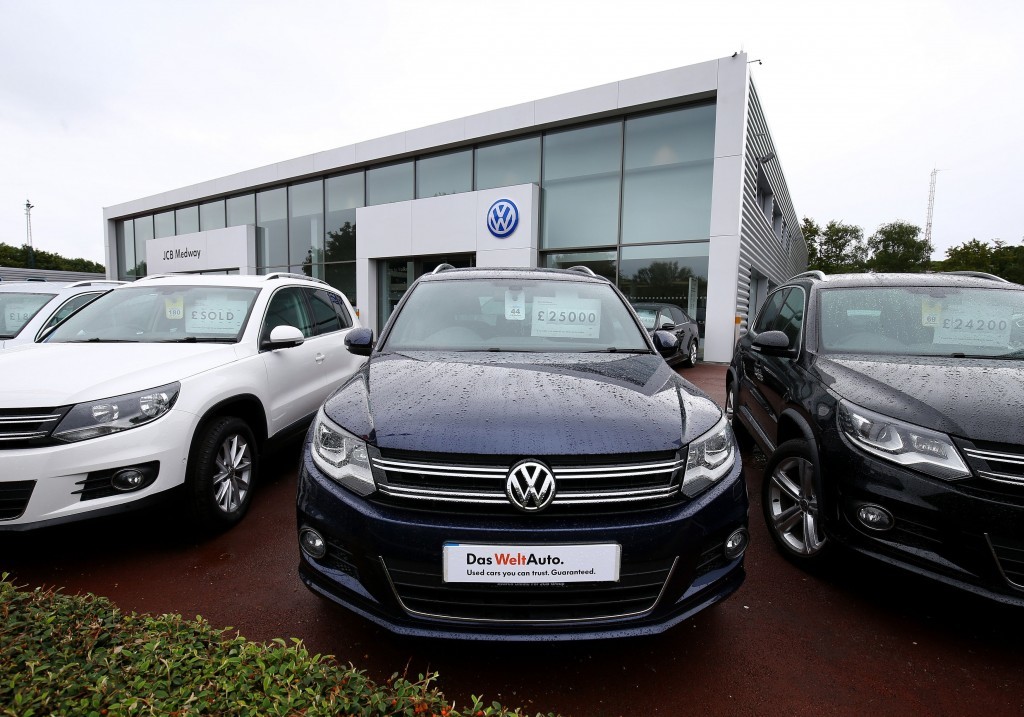
The pressure is mounting on the European Union to tighten rules on pollution from cars after Volkswagen AG admitted it built a system to undermine tests in the US.
Members of the European Parliament’s environment committee urged the European Commission to propose more stringent checks amid the widening scandal over emissions controls on VW’s diesel engines. VW has cheated on US air pollution tests for years, the Environmental Protection Agency said Friday.
“We must assume that there are many tricks going on in Europe without us realizing because the Americans check more than we do,” said Peter Liese, a German member of the parliamentary committee, said in parliament in Brussels on Wednesday. “We need more realistic, stringent procedures not only for NOx but also for carbon dioxide and fuel consumption. We all know that our cars use more fuel than in the test cycle and people are losing patience.”
The comments echoed by other lawmakers reflect Europe’s ambition to retain its reputation for leading on environmental issues. The incident also has triggered discussion about whether EU standards fall short of what the EPA requires in the U.S.
“It’s really gobsmacking that the car sector is effectively brainwashing us into thinking they’re acting in a green fashion,” said Eleonora Evi, an Italian member of the committee. “The opposite is true. People are being screwed. We need to be a hell of a lot stricter. Otherwise we will just look extremely bad vis-a-vis the rest of the world.”
The EC, the union’s executive arm, has laws limiting emissions of carbon dioxide and nitrogen dioxides that are blamed for global warming and damaging human health. Under current EU rules, the limits are set at the EU level while testing and approval are the responsibility of national authorities. That’s different in the U.S., where the certification system is centralized.
“I was really taken aback,” said Ivo Belet, a Belgian member of the EU Parliament’s environment committee. “I did think that when it came to environmental standards we were better than the U.S. That does not seem to be the case. I was struck by the lack of independent testing.”
Volkswagen, based in Wolfsburg, Germany, admitted to having used a sophisticated “defeat device” that switches on the most effective emissions controls only when cars are undergoing tests, according to the EPA.
The California Air Resources Board confirmed that during real-world examinations, NOx emissions violated state as well as U.S. laws, even though the same cars passed tests in the laboratory.
The European Commission, the 28-nation bloc’s regulatory arm, appealed for more caution in demanding changes to the bloc’s rules. The EU and U.S. systems were not comparable, and a meeting with national authorities planned in the coming days will offer an opportunity to analyze if further measures are needed, said Joanna Szychowska, head of the automotive unit at the commission’s directorate general for internal market and industry.
“It’s an extremely early stage, and it’s premature to say if Volkswagen cars in Europe are affected and if we should take any specific market surveillance measures,” Szychowska told the Parliament’s environment committee. “In the coming days, we will have a better overview of the situation.”
The regulator plans to meet with representatives of Volkswagen, the U.S. authorities and the German Federal Motor Transport Authority to discuss their initial findings. Germany, France and Italy have already started their own investigations and the commission will cooperate with them, Szychowska said.
Europe’s auto pollution protocols definitely need tightening, said Colin McKerracher, analyst at Bloomberg New Energy Finance.
“Vehicles are increasingly sophisticated devices with million of lines of code running simultaneously,” he said. “Without revision it will only get easier to game these testing processes. The EPA has committed to reviewing its testing processes, and the EU should do the same.”